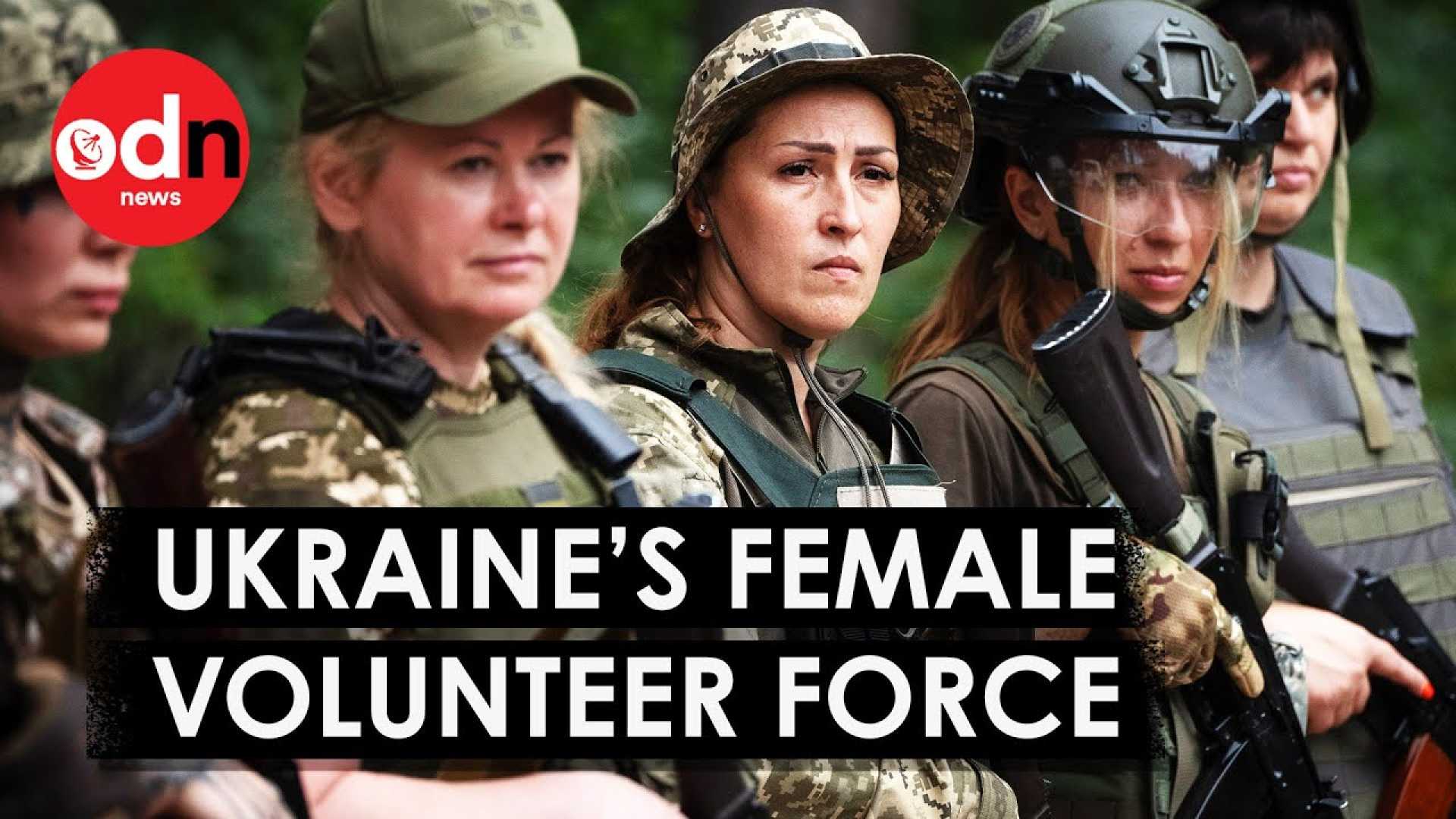News
The ‘Witches of Bucha’: Women Join Ukraine’s Air Defense

In Bucha, Ukraine, amidst the ongoing conflict, a remarkable group of women has emerged, gaining the local nickname “the Witches of Bucha.” These women, nearly a hundred strong, aged between 19 and 64, have taken on part-time military roles in air defense units in this suburban area northwest of Kyiv. Their mission is challenging and vital: they train to use assault rifles and machine guns to shoot down the Russian drones that frequently threaten their community.
These drones, destined for Kyiv, are a constant menace. They compel Ukrainian air defense forces to engage them with costly Western-supplied missiles. The drones’ flight paths trace the grim history of Russian ground forces that pass through the area, marking their passage with well-documented atrocities. These acts left the global community in shock and left Bucha’s residents profoundly affected, with many experiencing a form of collective post-traumatic stress disorder.
Seeking solace and purpose, these women volunteers have taken up arms since April. Among them is Valentyna, a 51-year-old mother of three, who feels she has found a sense of belonging and purpose within this community of defenders. “We have one purpose – to speed up the victory,” she told Al Jazeera, with her enthusiasm and determination mirrored in the dusty military range where she trains.
The women, who undergo rigorous training sessions in a location whimsically named “Mordor,” coordinated their efforts in shooting practice and tactical maneuvers. Their commanding officer, Colonel Andriy Verlaty, acknowledges no gender distinction when in uniform, emphasizing competence and dedication over all else. The women excel in their duties, sometimes even surpassing their male counterparts.
One notable challenge they face is the evolving tactics of the drones they target. According to Vladyslav Korg, an air defense unit participant, these drones, equipped with GPS and live streaming capabilities, adjust their tactics dynamically, making them a formidable and evolving threat.
The path to becoming a “Bucha witch” is not easy. Valentyna recalls the initial difficulties of her training, which tested her physical endurance and mental resolve. However, with experience, she, and others like Kateryna—a first-time participant—gain confidence in their abilities. The women often refer to the rigorous regime as an “outdoor gym,” bringing more than just physical benefits but also therapeutic relief from past traumas.
For others like Natalya, who faced the initial Russian invasion first-hand, this training represents a proactive participation in their nation’s defense, rather than spectating from a distance. It also forms a communal bond among participants, creating a support network as they rebuild their lives and communities.
Despite the challenges and the haunting memories of past traumas, Valentyna finds a sense of unity and purpose through her newfound community. Her professional life has taken a dramatic turn from medical practice to tactical combat training. Yet, even at home, she remains mentally engaged with her duties and her comrades, highlighting the indelible impact of the ongoing conflict on personal lives.












